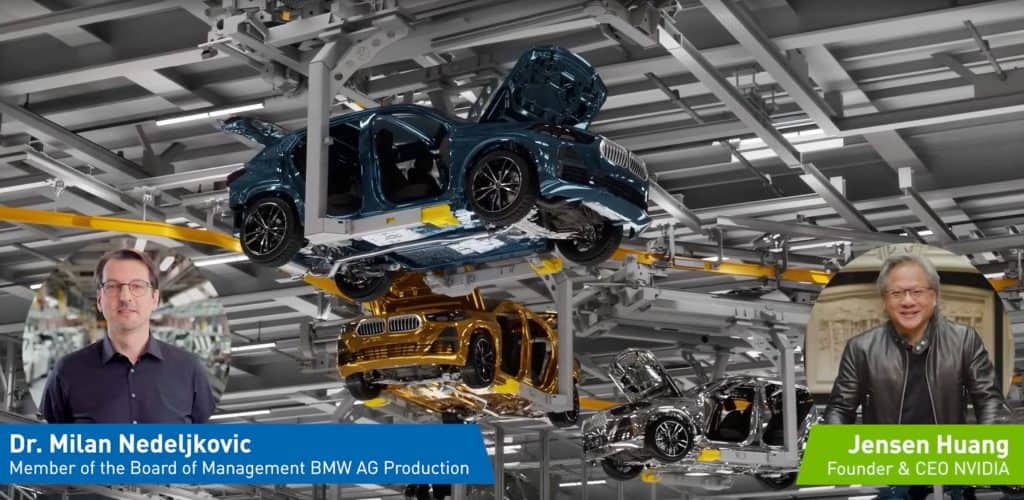
Milan Nedeljković, BMW AG Board Member for Production: “Together we’re about to make a huge leap forward and open up completely new perspectives in the field of virtual, digital planning. In the future a virtual representation of our production network will allow us to realise an innovative, integrated approach to our planning processes. Omniverse greatly enhances the precision, speed and consequently the efficiency of our planning processes.”
“BMW does personalized manufacturing at a massive scale – their operations are among the most complex in the world,” said Jensen Huang, founder and CEO of NVIDIA. “In their vision of future factories, people and robots work together, engineers from all aspects of factory design collaborate in a shared virtual space, and the entire factory is simulated with photorealistic detail. NVIDIA Omniverse was built to realize this future. I am delighted that BMW is using NVIDIA Omniverse to connect their teams to design, plan and operate their future factories virtually before anything is built in the physical world. This is the future of manufacturing.”
Virtual factory planning is already widespread, but until now it has required data to be imported from various applications. This is not only time-consuming but also raises compatibility issues. In addition, the data is not always up to date. In the future, the Omniverse platform will enable live data to be collected and collated from all the relevant databases to create a joint simulation – eliminating the need to reimport data. The goal is to enable modifications and adjustments to be assessed in the early stages of planning in order to create an overall view. This extreme transparency will allow planners and production specialists to plan highly complex production systems even more quickly and accurately, without interface losses or compatibility problems. Omniverse integrates data from various professional design and planning tools from a range of different producers and uses it to generate photo-realistic real-time simulations in a single collaborative setting.
Outstanding photorealistic quality is just one of the many benefits of Omniverse. Another is that employees at different sites in different time zones can access the virtual simulation and work together to plan and optimise details of a process or production system whenever they need to. In addition, Omniverse can be used in a multitude of applications: in the future, planners and production specialists will collaborate using real-time data that is synchronised in the Omniverse cloud infrastructure. They will also be able to discuss the integration of new production systems with suppliers. Omniverse allows structure and facility data to be integrated, as well as items and part numbers of materials in production. It can also be used for logistics planning, offering unprecedented data consistency, from planning through to production. “This is redefining collaboration,” emphasises Board Member for Production Milan Nedeljković. The ability to carry out changes live will speed up decision-making noticeably. Production planners at the BMW Group will be able to visualise the entire planning lifecycle for every plant in the global production network, accelerated by scalable GPU performance. This will be supported by a wide range of AI-capable application cases, from autonomous robotics to predictive maintenance and data analysis.
The BMW Group and NVIDIA are long-standing partners. In a first pilot project, the US-based company fitted high-performance technologies and special AI control modules to logistics robots and to the BMW Group’s self-developed autonomous transport robots (STR).